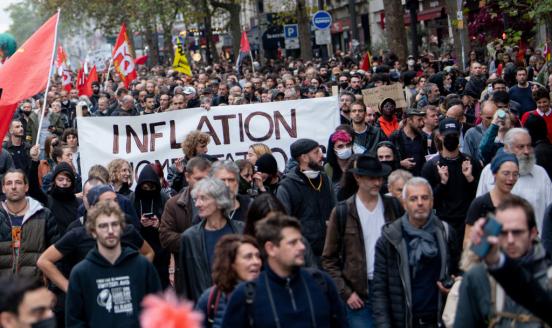The European Central Bank in the COVID-19 crisis: whatever it takes, within its mandate
To keep the euro-area economy afloat, the European Central Bank has put in place a large number of measures since the beginning of the COVID-19 crisis

This Policy Contribution was prepared for the European Parliament’s Committee on Economic and Monetary Affairs (ECON), as an input to the Monetary Dialogue of 8 June 2020 between ECON and the President of the European Central Bank. The original paper is available on the European Parliament’s webpage (here). Copyright remains with the European Parliament at all times. The author is grateful to Agnès Bénassy-Quéré, Maria Demertzis, Francesco Papadia, Stavros Zenios, Nicolas Véron and Guntram Wolff for their comments and suggestions, as well as Aliénor Cameron for her excellent research assistance.
- Central banks have taken drastic steps to keep their economies afloat during the COVID-19 lockdowns. In the euro-area, the European Central Bank (ECB) has eased significantly the conditions of its refinancing operations and has announced a new asset purchase programme. This response has triggered fears of a significant increase in inflation, and concerns about whether the ECB measures are compatible with its pricestability mandate and with the limits set by the EU Treaties.
- Accelerating inflation is not an immediate threat, as the euro area will experience in 2020 its deepest recession ever recorded. Initially, the pandemic took the form of a supply shock, but second-round effects have now generated a massive aggregate demand shock. The overall impact on prices will depend on which of these two shocks dominates, but at this stage, it seems that deflationary forces are likely to dominate and bring headline inflation into negative territory in the near future.
- An expansionary monetary policy is thus clearly warranted for the ECB to fulfil its price-stability mandate. Moreover, given the severity of the shock, there is currently no trade-off between the ECB’s primary mandate and its secondary macroeconomic objectives, which all point in the same direction. New measures implemented by the ECB also seem to respect the legal boundaries set by the EU Treaties and the criteria set by the EU Court of Justice in its rulings on previous ECB asset purchase programmes.
- However, the legal situation has been complicated by the 5 May 2020 ruling of the German Constitutional Court (GCC) on the ECB's 2015 Public Sector Purchase Programme. The ECB is not under the GCC's jurisdiction and it is difficult to predict how the legal situation will evolve, but from an economic perspective, if the ECB were to abide by the more stringent rules dictated by the GCC, it would make it harder for the ECB to fulfil its primary mandate and secondary objectives.
- The ECB’s current actions and the increase in the size of its balance sheet, even if it were to prove permanent, should not restrict significantly its ability to increase rates to fulfil its price-stability mandate. The ECB would have enough tools at its disposal to counter a surge in inflation if it were to happen.
- While the ordering is clear between the ECB's primary price-stability mandate and its secondary objectives, the secondary goals are not ranked by priority, possibly creating difficult trade-offs. Dealing with these is a political task and the ECB should welcome some clear guidance from the European Parliament and EU Council on which secondary objectives are the most relevant for the EU in a particular situation.
Recommended citation
Claeys, G (2020) 'The European Central Bank in the COVID-19 crisis: whatever it takes, within its mandate', Policy Contribution 09/2020, Bruegel



